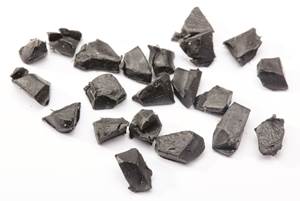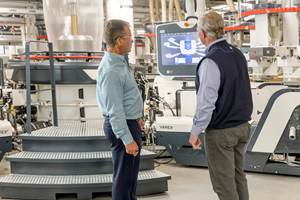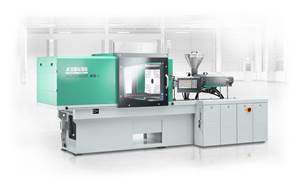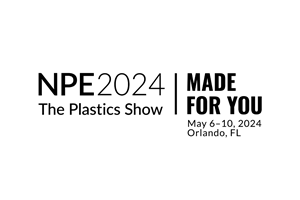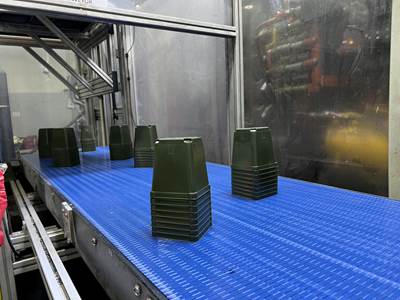National Survey Reveals Surprising Opinions About Recycling Plastic
Consumer expectations of product labeling and recycling outcomes are anything but straightforward.
A poll conducted by RG Strategies for the PLASTICS industry association surveyed 1,200 U.S. voters about their opinions on recycling, with some surprising results.
A majority of respondents, 67%, said that they strongly agree with the statement “I care more that a plastic item doesn’t end up as trash or litter than which process is used to recycle it.” Another 23% chose “somewhat agree.”
It is well established that recycling processes vary widely in terms of greenhouse gas emissions, water consumption, and other environmental impacts. Depending on these quantities and if virgin resin production is displaced, they may be more or less sustainable than traditional waste management. But according to most, the appeal of circularity for circularity’s sake is sufficient.
Evidently landfill and litter, are, in the public consciousness, the worst-case scenario for waste management. It is worth mentioning that the survey was conducted in February, before a fire at an Indiana recycling facility forced 2,000 people out of their homes. Further study could explore if such disasters favorably influence opinion concerning landfills and other traditional waste management.

In Richmond, poorly executed waste management led to open air combustion of plastic, a result far worse than landfill.
Recyclability May Have No Bearing on What Happens to a Product After Use
Another interesting result concerned the definition of recycling, with respondents favoring a very literal definition. A huge majority, 77%, strongly agreed that “if a product is labeled as recyclable, I would assume that means that it is technically capable of being recycled.” Another 18% “somewhat agreed.” Most define recyclable in accordance with a simple dictionary definition, as indicating a technological possibility rather than an available solution.
The economic and social factors that determine what actually happens to the product after use are then, according to the majority opinion, irrelevant. EPS and many other materials would certainly be considered recyclable from that perspective. Indeed it is difficult to imagine what would be considered un-recyclable, as anything can be turned into something else, given enough time, money, and energy.
The Definition of ‘Recyclable’ May Not Quite Be Settled
There is some uncertainty on this point, despite the 95% consensus. Later in the survey, respondents were asked about the variation in recycling systems across the country. So: “is it appropriate to label that item as recyclable, even if access to recycling facilities varies across the country?” Agreement dropped from 95% to 82%, which suggests some respondents assume a recyclable label implies only technological capability, but also feel this is an inappropriate labeling practice.
The final question asked about the fact that a product that should be placed in the waste bin in one place, should be placed in the recycling bin in another. What does a label of “recyclable” mean for that individual item? Most popular response: “I expect the product can be easily recycled in all areas, regardless of local systems” (33%). Another 29% chose “I expect the product can be recycled in most areas where it is sold.”
Suddenly, available infrastructure and programs for recycling seem to matter very much. The way the proportions overlap is especially interesting. A significant number must have said that it is appropriate to label an item as recyclable even if access to recycling varies across the country AND that they expect a product labeled as recyclable can be easily recycled in all areas, regardless of local systems. These consumers are optimistic that a label will give them more than they ask of it.
Overall, results of the poll suggest that ideas about recycling are complicated. The sample is significant in its size (RG Strategies reported the margin of error as +/- 2.8%) and importance. Evaluation of public knowledge and ideas about recycling can illuminate a key link in the material management chain, the retail customer, one that will only grow in importance as waste streams continue to expand and recycling services become available in more areas.
Related Content
Avoid Four Common Traps In Granulation
Today, more than ever, granulation is an important step in the total production process. Our expert explains a few of the many common traps to avoid when thinking about granulators
Read MorePregis Performance Flexibles: In the ‘Wow’ Business
Pregis went big and bold with investment in a brand-new, state-of-the-art plant and spent big on expanding an existing facility. High-tech lines, well-known leadership and a commitment to sustainability are bringing the “wow” factor to blown film.
Read MoreCalculating an Injection Molding Machine’s Carbon Footprint
Arburg has utilized the ISO TS 1467:2018 standard, which determines the greenhouse gas emissions of a product, to help its customers calculate the product carbon footprint (PCF) of its injection molding machines.
Read MoreProcessing Megatrends Drive New Product Developments at NPE2024
It’s all about sustainability and the circular economy, and it will be on display in Orlando across all the major processes. But there will be plenty to see in automation, AI and machine learning as well.
Read MoreRead Next
Processor Turns to AI to Help Keep Machines Humming
At captive processor McConkey, a new generation of artificial intelligence models, highlighted by ChatGPT, is helping it wade through the shortage of skilled labor and keep its production lines churning out good parts.
Read MoreHow Polymer Melts in Single-Screw Extruders
Understanding how polymer melts in a single-screw extruder could help you optimize your screw design to eliminate defect-causing solid polymer fragments.
Read MoreLead the Conversation, Change the Conversation
Coverage of single-use plastics can be both misleading and demoralizing. Here are 10 tips for changing the perception of the plastics industry at your company and in your community.
Read More



















